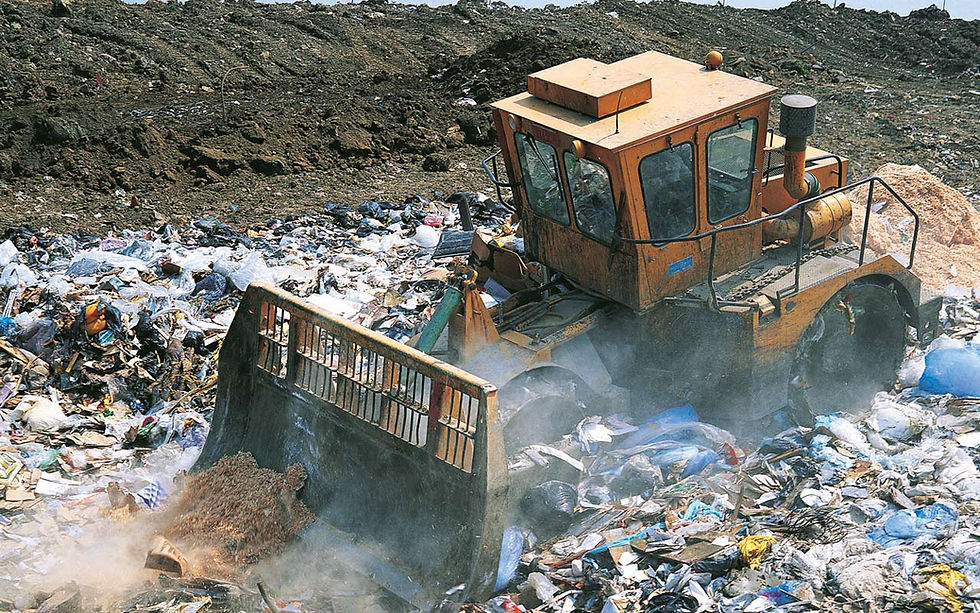Why zero waste?
- minimalimpactkernow
- Jan 3, 2018
- 3 min read

It shocks me how many people in our society don't care about our environment and will live a wasteful and consumerist life style, but then I actually take a minute to think and realise that our civilization is made that way. We are brought up learning certain habits and are raised based on what our parents have learnt from their parents and so forth. The world today is highly consumerist and basically a life style that portrays 'out of sight out of mind'.
Before I went zero waste I bought and chucked out so much trash and didn't even think about it. But that being said, I grew up around single use plastics and other disposables, not actually taking into account where all of our trash goes because it was the normal thing to do. I was highly addicted to buying 'stuff' just because I wanted it and most of the time it got used for very short periods of time before breaking and ending up in landfill. I have always been a massive nature lover and studied a bachelors in Applied Marine Zoology so I knew all about the plastics in our oceans and how they were harming our marine and terrestrial life.
So why didn't I make a difference then?
It was only after I finished university that I opened my eyes to the world of living with minimal trash. In Cornwall, we are surrounded by disposable items. Being a tourist area, the county is filled with disposable cutlery, cups and takeaway packaging. In our sociey it is considered the 'norm' to use and dispose of these single use items, we don't even think about where it ends up or what impact it will have on the Earth and our environment. As humans we are drawn to buying new shiny products due to advertisements and a majority of these items are plastic based or come in plastic packaging. It wasn't until I watched the screening of a documentary called 'A plastic ocean' that it finally hit me.
So why Zero waste?
Every. single. item of plastic we use will remain on the Earth forever. It won't even stay in one place. Thanks to mother natures gift of wind and water, plastic and other trash will ultimately travel via these elements and end up all around the world. There are even islands of trash forming in the middle of the oceans due to swirling currents which form whirlpools of plastic and other disposable items. The idea of living a zero waste life style is to minimize how much waste is sent to landfill.
So you're probably wondering, what's wrong with plastic? Well... plastic is a synthetic material that is made to be durable, cheap and easy to produce. Because of this, plastic will never breakdown in our environment and will last hundreds and thousands of years. Instead of breaking down naturally like food waste and natural materials, plastic will simple break into smaller and smaller pieces. Plastic in our oceans is a very concerning topic. Micro plastics, identified as pieces less than 5mm are floating on the ocean surface and are ingested by smaller marine species such as plankton and fish.
Plastic is coated and made from chemicals and toxins which are hydrophobic (doesn't like water) and therefore will sit on the surface of the item and therefore also become ingested it. In addition to being hydrophobic, these chemicals are also lipophilic, so will store themselves in muscle and fat affecting the anatomy and physiology of animals such as their hormones, endocrine systems and reproduction organs. Larger mariner life such as baleen whales that eat these plankton will then accumulate these toxins and store them in their bodies. As mammals they unfortunately also gain these toxins and as a result pass these onto their young, also known as the toxic dump.
But aren't there are other waste forms as well as plastic?
Although plastics are the main focus in my journey I also want to reduce the amount of other resources I use on a daily basis including materials like paper and aluminium cans. In order to achieve an efficient zero waste life style, I live by the 5 R's.
Reduce - The amount of disposable products you use
Refuse - What you don't need
Reuse - What you already have
Recycle - Items you cannot reuse
Rot - Compost food scraps and natural materials
Becoming zero waste doesn't happen overnight. It is a journey where you will have successes but also fails and you learn from your mistakes everyday. Despite this, the journey is self rewarding and every change has the potential of great impact on the environment.
A plastic Ocean: https://www.plasticoceans.org/
The documentary is on Netflix


Comments